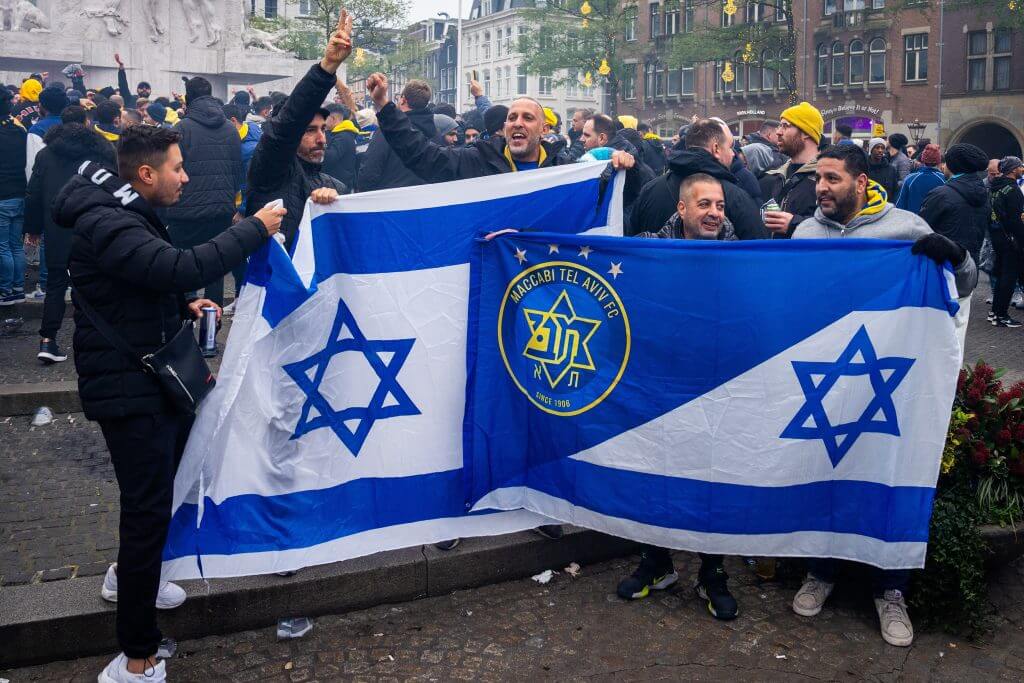
The British government is holding urgent discussions to overturn a controversial decision barring Maccabi Tel Aviv fans from attending their Europa League match against Aston Villa, after Israel condemned the move as “shameful.”
The decision by Birmingham’s Safety Advisory Group (SAG)—which issues matchday safety certificates—prohibits away supporters from attending the November 6 fixture at Villa Park, citing security concerns.
Israel’s Foreign Minister Gideon Saar swiftly denounced the ban on X (formerly Twitter), calling it a “shameful and cowardly decision” and urging UK authorities to reverse it.
Backlash Mounts in UK and Beyond
Criticism of the ban has grown rapidly, drawing comments from Prime Minister Keir Starmer, European football’s governing body UEFA, and senior UK police officials.
Starmer, an avid football fan, described the decision as “wrong,” stressing that authorities must ensure all fans can attend matches “without fear of violence or intimidation.”
“We will not tolerate antisemitism on our streets,” the prime minister wrote. “The role of the police is to ensure all football fans can enjoy the game safely.”
A spokesperson for Downing Street confirmed that “talks are happening at pace across government and with all relevant groups” to find a solution. Culture Secretary Lisa Nandy, whose portfolio includes sport, is leading discussions with the Home Office and local stakeholders.
UEFA also intervened, urging “all parties to agree on appropriate measures necessary to allow supporters to attend safely.”
Police Cite Security Risks, Referencing Past Violence
The West Midlands Police, whose jurisdiction covers Villa Park, defended the ban, saying it was based on “current intelligence and previous incidents.”
They noted that the fixture had been classified as “high risk” following violent clashes and hate crimes during last year’s Ajax vs. Maccabi Tel Aviv Europa League match in Amsterdam.
“Public safety concerns outside the stadium and the ability to manage potential protests on the night informed this decision,” a police spokesperson said.
That 2024 match saw two days of unrest in Amsterdam, where Israeli fans were assaulted amid violent confrontations with pro-Palestinian demonstrators.
Mixed Reactions Across the Political Spectrum
While senior government figures have pushed for the ban to be lifted, several left-wing and Green politicians have defended the restriction, calling for broader exclusion of Israeli teams from international competition in protest over the war in Gaza—drawing comparisons to the boycott of apartheid-era South Africa.
Israeli fans have voiced deep disappointment. Emily Damari, a British-Israeli and survivor of the October 7 Hamas attack, said the ban “does the exact opposite” of football’s unifying purpose.
“Football is meant to bring people together, regardless of faith, colour, or religion. This disgusting decision divides instead,” she said.
Maccabi Tel Aviv CEO Jack Angelides told BBC Radio that the team has played in countries with anti-Israeli sentiment “where police provided protection and there were no incidents,” arguing that “this situation should be no different.”
Israeli supporter Tamir Nahson, 37, called the decision “a missed opportunity,” adding, “It’s painful that the UK is now being seen as a centre for antisemitism. It’s disappointing for both Maccabi and Aston Villa fans.”
The row comes amid the ongoing Israel–Hamas conflict, which has killed at least 67,967 people in Gaza, according to the Hamas-run health ministry—figures deemed credible by the United Nations.
Hamas’s October 7, 2023 attack on Israel left 1,221 people dead, mostly civilians, according to Israeli government data compiled by AFP.
The issue continues to strain international relations and spill over into global sporting arenas, where political tensions are increasingly influencing decisions off the pitch.



